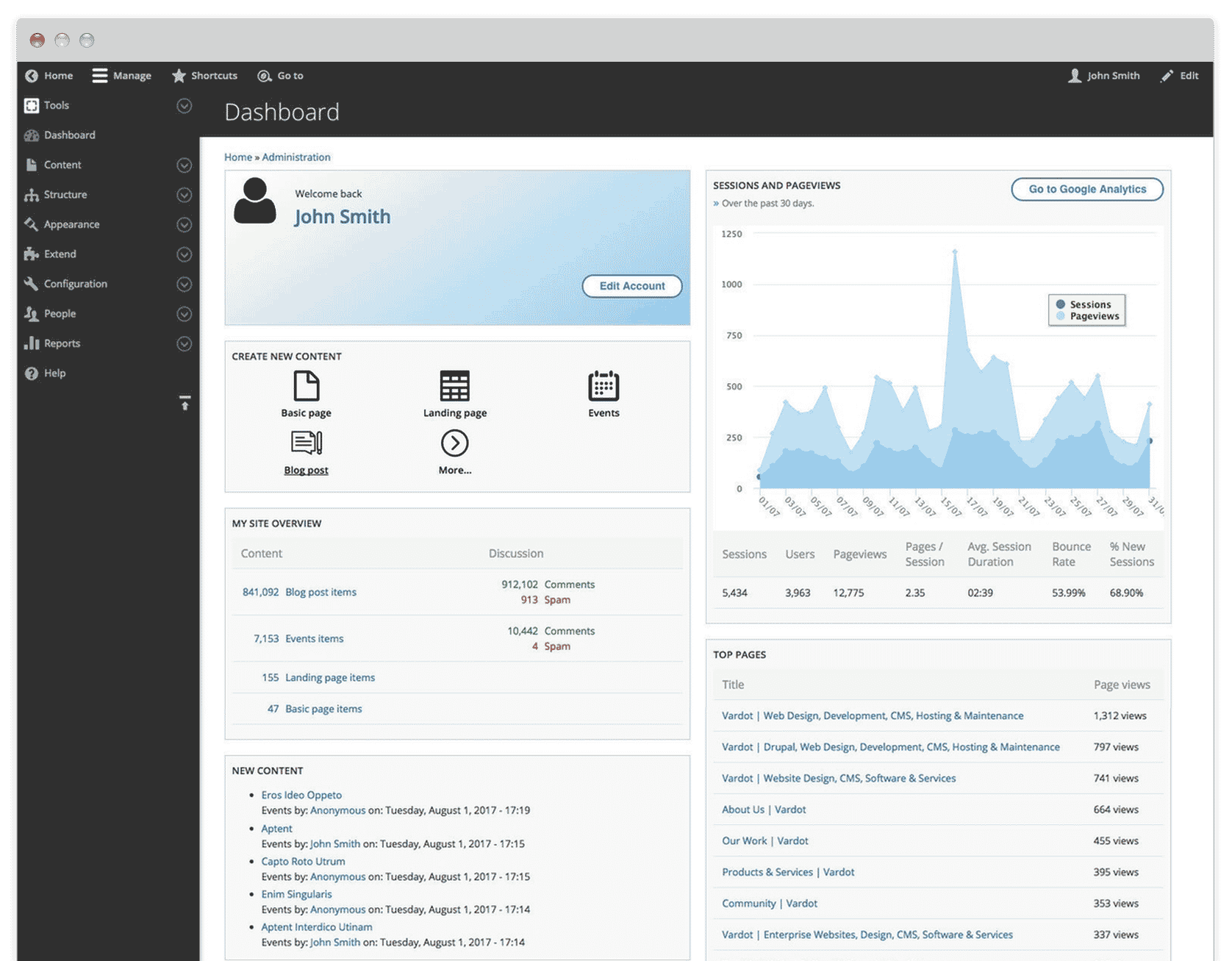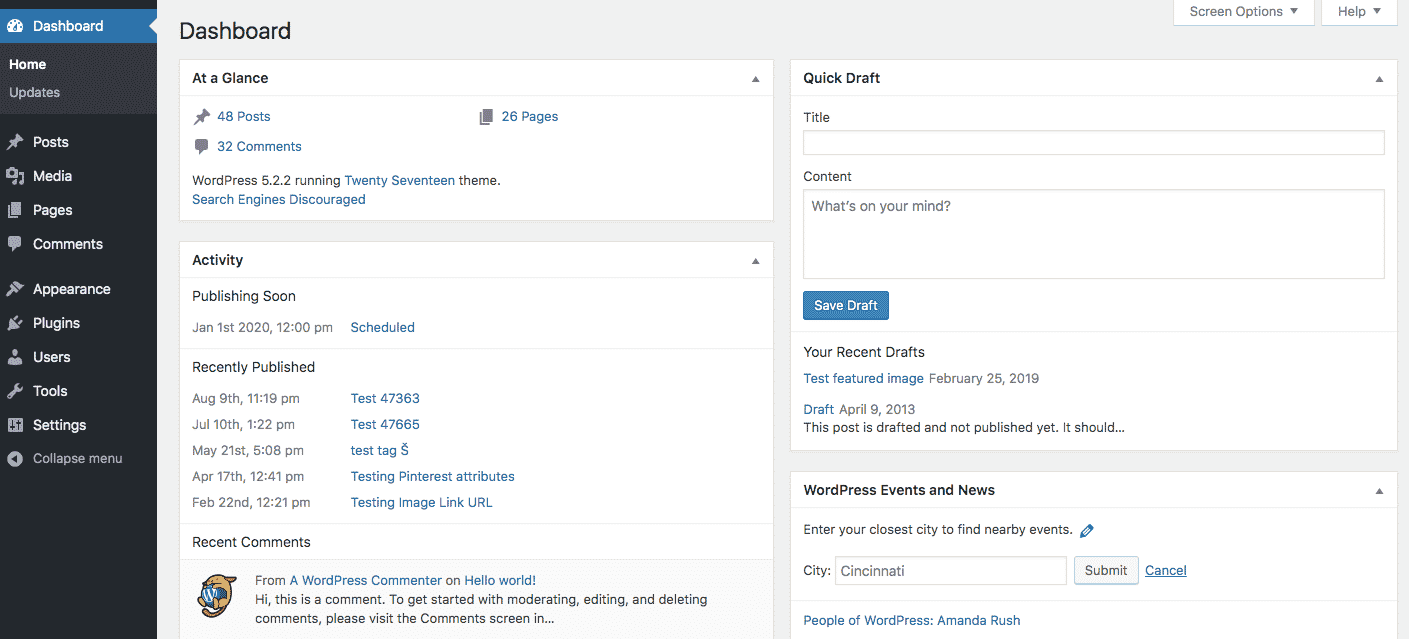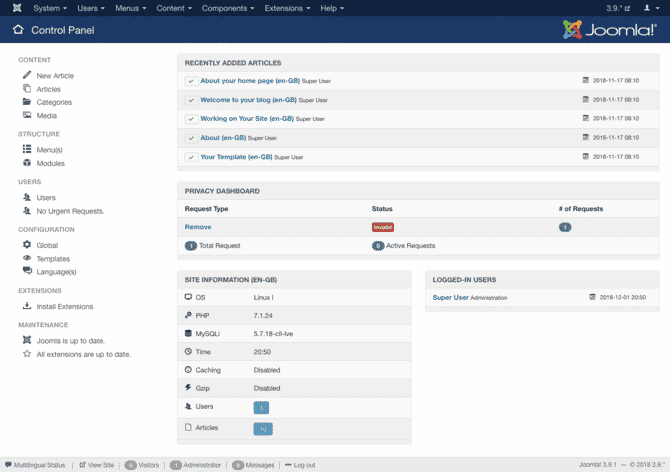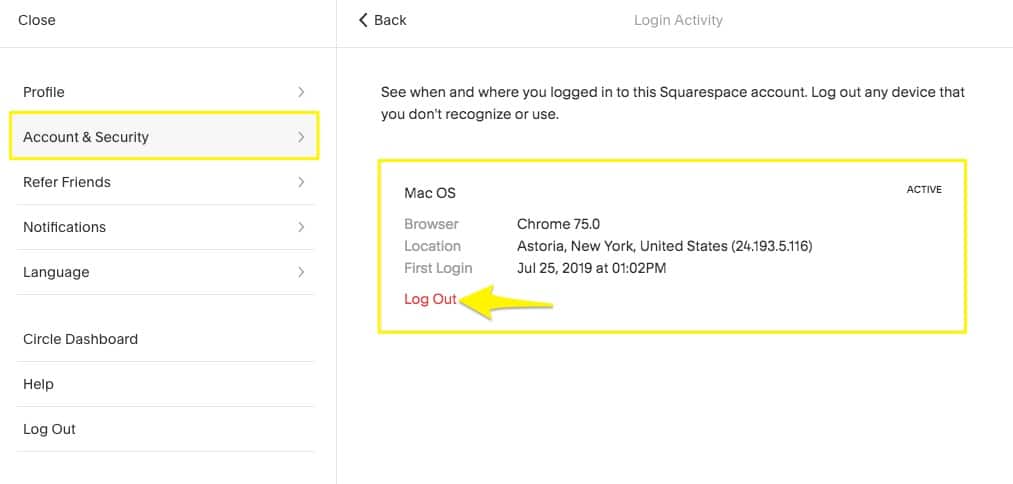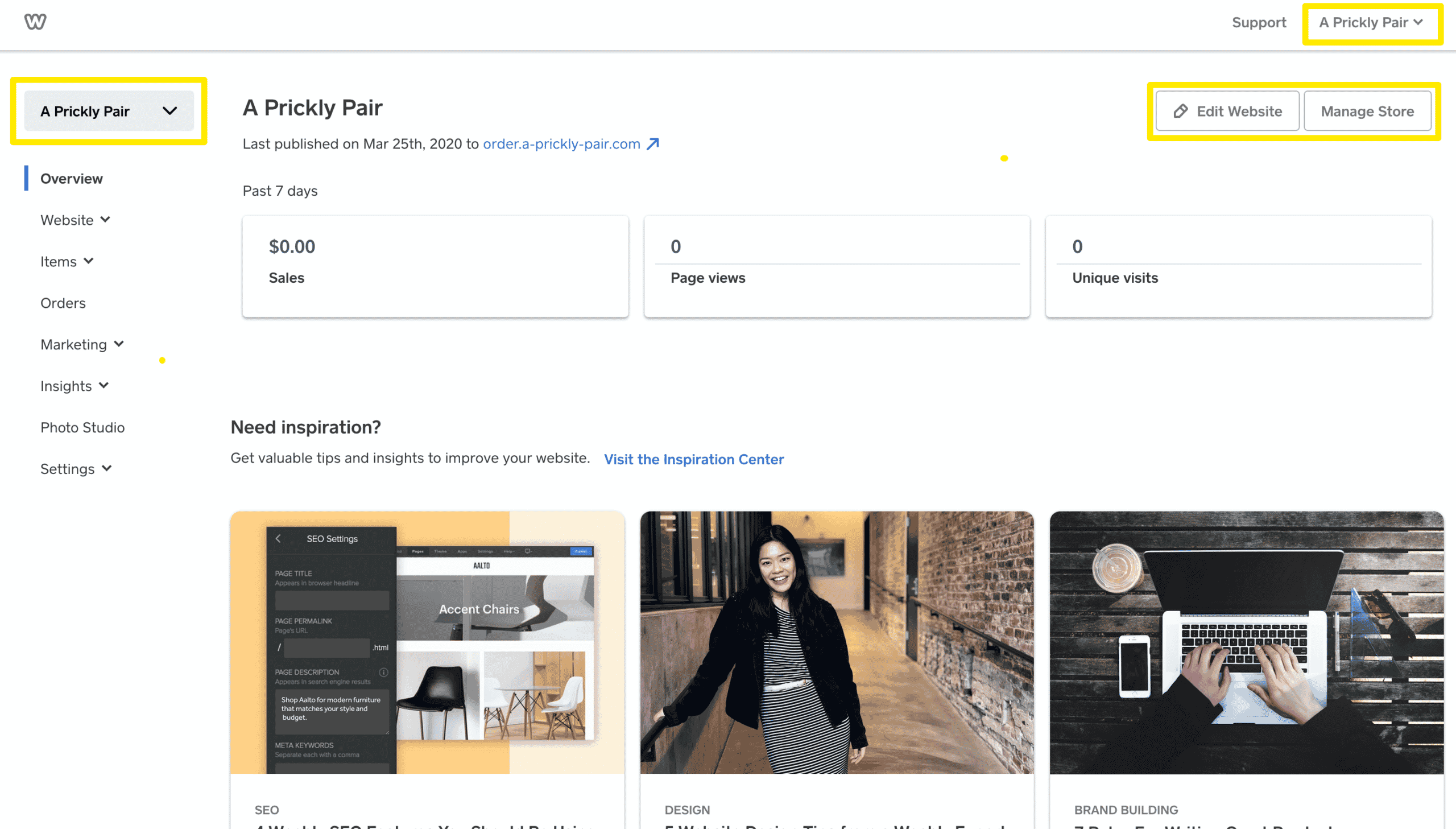Are you looking for a content management system (CMS) to help you upgrade your existing website or create a new one? Drupal could get the job done, but what if you have already found that it is not a right fit? If so, keep reading, as we will take a closer look at several Drupal alternatives to serve your web development and content management needs.
What Is A Content Management System (CMS)?
A CMS is a tool that simplifies optimizing or modifying a website by eliminating the need to complete a bunch of complicated PHP or API tasks or building a site using HTML, CSS, and JavaScript by hand. Depending on the CMS, you may have control over your site’s coding, but the overall benefit of such a website building solution is that it is easy to use and lets even beginners build a website without any coding knowledge.
Read: Best CMS for Web Developers
What Is Drupal?
Drupal is a popular, open-source CMS created with developers in mind. Known for its flexibility, this free CMS gives you the power to extend functionality via thousands of modules, and it also comes complete with integrated security and features to help you build the best site possible.
Developers, in particular, cite how easy it is to create customization in Drupal – particularly by implementing PHP code and other web scripting languages. One reason this is so simple in Drupal is because of hooks, which let web developers work with the core code of Drupal to add features and functionality.
Drupal Hooks
Since Drupal is open source, it is also easy to see the codebase and modify it. Drupal developers are also not limited to usual CMS structures like categories, articles, and so forth. Instead, they can create their own website structure to suit their needs.
Who Is Drupal Ideal For?
Since this article is all about Drupal alternatives, it is no surprise that this CMS is not for everybody. Who is it ideal for? Companies that need to create large, complex websites. Drupal can serve such clients well since it is scalable, and it even offers multilingual capability if you have global needs.
Drupal is also ideal for web developers who have coding knowledge and want the power to build a completely custom website from scratch. This CMS lets you customize and rebuild elements to fit your precise needs, thanks to its open-source nature. And it also offers versatility in terms of content types, as you can use Drupal to inject blog posts, informational pages, and so forth into your site.
While you can find plenty of help via Drupal’s community, you will not find dedicated customer service or support here. So, if that is not an issue, Drupal should be a good fit. And lastly, if you want 100 percent control over security, Drupal is the right option for you.
Read: How to Optimize Your Website Performance
Reasons To Choose A Drupal Alternative
Although Drupal is one of the most popular content management systems, it is not for everyone. What is its number one downside? Usability, so if you are a beginner looking to avoid a steep learning curve and want something ready to go out of the box, a Drupal alternative may be your best bet.
Here are other reasons to choose a Drupal alternative:
- You lack programming and coding experience.
- You may need professional support or customer service.
- You worry about the performance and speed of your site.
- You want to build your site as quickly as possible with the least amount of work.
The Top Alternatives To Drupal
Now that you have seen some of the pros and cons of Drupal, it is time to reveal some of its top alternatives for web development and content management.
WordPress.org
WordPress.org is the most popular CMS in the world. It holds over 60 percent market share of all websites built via a CMS, and it powers over 40 percent of the top 10 million sites. Like Drupal, WordPress.org is very flexible, thanks to its open-source nature. Unlike Drupal, it is easier to use and requires less coding knowledge.
You will not have trouble finding resources, such as WordPress tutorials or support forums, when using WordPress.org to build a site, as it is the largest open-source CMS community in the world. You can find thousands of professional designs and themes to get your site’s look just how you want it, and you can extend its functionality via thousands of plugins.
As for its price, WordPress.org is free to use, so you can download it and start to enjoy its features without paying a thing. However, there are some expenses to consider if you plan on using WordPress.org to build your sites, such as domain registration, hosting, security, and premium plugins and themes. And, if you need professional assistance from developers down the line, that will incur a cost as well.
What are the biggest downsides to WordPress.org? For starters, its popularity could be seen as a negative, since it makes an excellent, big target for hackers. Maintaining a WordPress.org site can be time-consuming too. Updating themes and plugins with each new iteration of the WordPress core – or as those plugins and themes get updated to add features or patch issues – can be burdensome, particularly if you rely on many plugins to add functionality to your website or eCommerce store.
That being said, however, if you need flexibility and a content management system that is easy to use, set up, configure, and manage content on, you cannot go wrong here.
Read: WordPress vs Drupal: A Comparison Guide
Joomla
Joomla is a flexible and versatile open-source Drupal alternative that gives you the power to extend your site’s functionality without having to worry about a ton of JavaScript or HTML.
While Joomla can work with a wide variety of website types, it often works best with portals, social networks, and membership sites. Coding knowledge is unnecessary with Joomla, but if you want to get the most out of this CMS and use its advanced features, it will help.
Joomla works best as a Drupal alternative for someone who wants to build various sites or web applications for different clients. It supports more custom post types than similar platforms, has integrated multilingual support, and has several advanced user, customization, and content management options. For instance, each page or post within a Joomla site can have its own template – something that is not as easy to achieve in an alternative such as WordPress.
You can download and use Joomla for free, but you will need to pay for domain registration, themes, hosting, and certain plugins. Since Joomla is a smaller community, finding support may be more difficult than with WordPress or even Drupal. It also lacks an official theme directory, and you could have trouble installing some of its extensions if you are not tech-savvy, as it is not as simple as uploading a .ZIP file and clicking install.
Read: Joomla vs WordPress Comparison Guide
Squarespace
If you do not require the scalability that Drupal offers, Squarespace may be a decent alternative. You can use the website builder to build a site for an online portfolio or small business with ease, and you will not have to worry about putting any coding skills to work, should you have them.
Squarespace is user-friendly and features a bevy of eye-catching templates to make your site shine. It works well for eCommerce sites, connects with social media channels, and offers plenty of support for companies that require it.
Pricing for Squarespace starts at $14 per month for the Personal plan and $23 per month for the Business option. There is also a $27 monthly Commerce plan. All come with a free custom domain and SSL certificate. If that all sounds good, know that there is one disadvantage to picking Squarespace as your Drupal alternative: It lacks an app market, so if extending your site’s functionality is crucial, this may not be the right fit.
Read: Squarespace vs WordPress: Comparison Guide
Weebly
Out of all of the Drupal alternatives on this list, Weebly is the CMS that may be the easiest to use. It is very beginner-friendly and lets you build a site with an editing system that is as simple as can be.
Weebly offers several themes to choose from, and it is also strong in the app integration department. You can use Weebly to build a site for free, but you will need to pick a paid plan if you hope to unlock its more advanced features. The Personal plan starts at $6 per month, and you can also try the most expensive option – Performance – for $26 per month.
Weebly is ideal for eCommerce site creation and anyone looking to get up and running with as little work as possible. Its customization options are a bit lacking, though, and it will not be ideal for someone who needs to build international sites or sites with extended functionality, such as database-driven web apps.
Read more content management system (CMS) reviews, comparisons, and tutorials.



